If there is one lesson that Jude McCann, chief executive of farming charity Rural Support, learned from his Nuffield Scholarship, it’s the importance of looking after “the top paddock”.
Jude spent two years working on his scholarship, completing a report entitled “Securing farmers’ resilience in a changing world”. This included travelling to 13 countries to visit farms, public bodies and non-government organisations.
“The Nuffield Scholarship was an amazing opportunity; I finished in November last year. It was a challenge with the travel, family commitments at home and work, but I’m glad I did it,” he says.
“There was a couple of key lessons pulled out from farmers that I met through my experience. Doug Avery is a farmer in New Zealand who wrote a book called The Resilient Farmer. Doug had been through depression and mental health issues as a result of a drought on his farm. He turned to alcohol, his relationship was on the rocks, he closed in on himself and let off farm staff.

“Eventually he was encouraged to attend a farmers’ meeting one night. He heard a scientist talking about lucerne, which grows particularly well in dry areas. He started planting the crop and it turned out to be the saviour of his farm, but it saved his life as well.
“Doug went from zero income I think in 1998 to becoming Farmer of the Year in the South Island of New Zealand 10 years later. He talks about looking after the top paddock, meaning your mental health. He went to counselling and got support and now he is travelling the world giving talks to farmers about looking after their mental health.
“With mental health, the stigma is slowly being reduced around seeking help, but it takes even longer for that to ripple through to farming and rural communities. Farmers are quick to phone the vet when there is a sick animal, but if they’re not looking after themselves physically and mentally, it’s going to impact their farm business and family. Farmers are proud people but slowly we (Rural Support) are starting to break down some of those barriers.”
And this is a topic that Jude will be exploring when he addresses The Resilient Farmers’ Conference in Portlaoise on 25 April.

Then and now Jude spent his younger years assisting his father on their beef farm situated close to the south Derry-Tyrone border – a time when he believes farmers were more highly regarded.
After studying geography at the University of Ulster Coleraine, Jude completed a Masters at Loughry College before making the move to New Zealand, where he lived for seven years. On his return, he completed a PhD through Queen’s University, examining ‘Rural Restructuring and Information Systems’, which he began in New Zealand.
“I worked at the University of Auckland; I was employed to do research with farmers looking at the removal of subsidies from agriculture. I met my wife, who is from Cambodia, during my last year in New Zealand. We lived in Belfast for a few years and have now moved back home; we built a house on the family farm. My dad still keeps a few cattle, so I would help out in the evenings and weekends.”

Rural SupportRural Support was established as a result of the foot and mouth crisis in 2002. The charity offers support, guidance and a referral service for farmers and rural families who are experiencing difficulties.
“In the early years Rural Support was just seen as a helpline support for when people needed someone to talk to. That is still a valuable part of what we do, but we’re being more proactive, going out and meeting people, providing support in their homes, running sessions like Making Tax Digital. It’s about trying to get people to come to us with the problem before it becomes a crisis because then there is so much more we can do,” says Jude.
“In some cases, we’re supporting farmers who are in serious financial difficulties, the banks are closing in and we’re trying to save the house out on the farm. If that individual had of come to us a year earlier, there are things we could have done to prevent that from happening.
“Our service is confidential and free. If a farmer contacts us and they want somebody to visit, we might have someone in their local area, but we can also source someone further afield. Sometimes it’s easier to talk to someone outside the area.”
The Rural Support team has expanded to 50 members, including mentors and volunteers and as the pressures on farmers increase, extra help is needed.
“We’re seeing farmers who are operating farm businesses that were viable in their parents’ or grandparents’ generation, but now they’re struggling to make it a viable farm business,” explains Jude.
“While there are serious challenges at the minute and we’re all too aware of the pressures of Brexit, on the global scheme of things, you look at the population increase in the world and the need for food and the increased appetite for western products. We’re the envy of a lot of the world with the soil and water that we have, so there will always be great opportunities. But what we’re seeing now is the pace of change is faster with new technology, new environmental legislation, things are changing rapidly and for an ageing farming population, that’s become more and more difficult.
“We were able to help out with the downturn of milk prices. We were seeing larger farm enterprises contacting us who the general public see as some of the best farm businesses in Northern Ireland, but no one knows what is going on behind closed doors, what the financial situation might be, relationship or mental health issues. We’re dealing with all of those; there is more change and pressure on farming families.
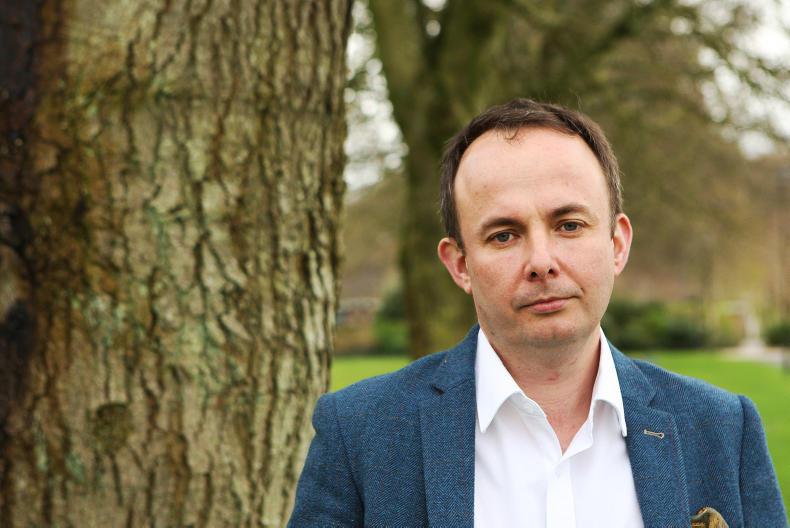
“I remember growing up on the family farm, our neighbour who was a farmer wore a shirt and tie every day to work and he put the boiler suit on over it, he was very proud to be a farmer. The respect that farmers had 20, 30, 40 years ago, that seems to be gone now, people don’t realise that they’re depending on farmers numerous times a day. The public don’t have much sympathy and you have increased pressures from consumers, the veganism movement, climate change and now farmers are being demonised for causing pollution.”
It’s much easier to take time out when things are good, but when the tides turn, the real challenge arises.
“If the farm business isn’t going well, it’s very hard to take your mind off it. We would be encouraging farmers to do simple things, like every Friday evening saying: ‘Right we’re going to have fish and chips tonight, we‘ll invite the neighbours around and have a bit of craic’, and to take a day off now and then, and build that into your week,” says Jude.
“Some of the most successful farm businesses, they’re growing and doing well, but sometimes the family is suffering and there is less time for the kids, wife or partner. You have to get that balance right. Yes the business is important, but at the end of the day, your family and health has to come first.”
Jude will be speaking at the second leg of the Resilient Farmers’ Conference – Farmers’ Health & Wellbeing: Building a Community of Support , hosted by Embrace FARM (ROI) in collaboration with Rural Support (NI) and Farm Safety Foundation (UK), on 25 April in the Killeshin Hotel, Portlaoise. The event will highlight the issues impacting farmer’s health and wellbeing, and aims to build a community of support. The final conference will take place in England at National Farmers Union HQ on 21 May, hosted by the Farm Safety Foundation.
Supporting farming
families abroad
As well as supporting local farmers, Jude and his wife – who is originally from Cambodia – also had an impact on the lives of those living in her hometown and in the surrounding rural areas. The pair travel regularly to Cambodia and people’s generosity inspired them to build a school.
“People heard stories about the poverty in Cambodia and gave us money, telling us to put it to good use. In the beginning we bought bicycles for kids who had a long way to travel to school or rice for families who were struggling. Then I said to my wife: ‘People have a genuine interest and want to help’,” says Jude.
“We did a fundraiser and within a year, had raised enough to build a small school in Cambodia in my wife’s home town. One hundred and fifty kids come to the school every day. I would say more than half are from farming families and when you talk about farming in Cambodia, it’s maybe a rice field, four cows and 10 chickens.
“We’re always looking for volunteers to teach, you don’t have to be a teacher, just people who are prepared to have fun and teach basic English.”
Visit www.cycschool.com to find out how you can volunteer in Cambodia.
Read more
My Country Living: how mum gave me the gift of life a second time
My Country Living: more than just a racehorse
If there is one lesson that Jude McCann, chief executive of farming charity Rural Support, learned from his Nuffield Scholarship, it’s the importance of looking after “the top paddock”.
Jude spent two years working on his scholarship, completing a report entitled “Securing farmers’ resilience in a changing world”. This included travelling to 13 countries to visit farms, public bodies and non-government organisations.
“The Nuffield Scholarship was an amazing opportunity; I finished in November last year. It was a challenge with the travel, family commitments at home and work, but I’m glad I did it,” he says.
“There was a couple of key lessons pulled out from farmers that I met through my experience. Doug Avery is a farmer in New Zealand who wrote a book called The Resilient Farmer. Doug had been through depression and mental health issues as a result of a drought on his farm. He turned to alcohol, his relationship was on the rocks, he closed in on himself and let off farm staff.

“Eventually he was encouraged to attend a farmers’ meeting one night. He heard a scientist talking about lucerne, which grows particularly well in dry areas. He started planting the crop and it turned out to be the saviour of his farm, but it saved his life as well.
“Doug went from zero income I think in 1998 to becoming Farmer of the Year in the South Island of New Zealand 10 years later. He talks about looking after the top paddock, meaning your mental health. He went to counselling and got support and now he is travelling the world giving talks to farmers about looking after their mental health.
“With mental health, the stigma is slowly being reduced around seeking help, but it takes even longer for that to ripple through to farming and rural communities. Farmers are quick to phone the vet when there is a sick animal, but if they’re not looking after themselves physically and mentally, it’s going to impact their farm business and family. Farmers are proud people but slowly we (Rural Support) are starting to break down some of those barriers.”
And this is a topic that Jude will be exploring when he addresses The Resilient Farmers’ Conference in Portlaoise on 25 April.

Then and now Jude spent his younger years assisting his father on their beef farm situated close to the south Derry-Tyrone border – a time when he believes farmers were more highly regarded.
After studying geography at the University of Ulster Coleraine, Jude completed a Masters at Loughry College before making the move to New Zealand, where he lived for seven years. On his return, he completed a PhD through Queen’s University, examining ‘Rural Restructuring and Information Systems’, which he began in New Zealand.
“I worked at the University of Auckland; I was employed to do research with farmers looking at the removal of subsidies from agriculture. I met my wife, who is from Cambodia, during my last year in New Zealand. We lived in Belfast for a few years and have now moved back home; we built a house on the family farm. My dad still keeps a few cattle, so I would help out in the evenings and weekends.”

Rural SupportRural Support was established as a result of the foot and mouth crisis in 2002. The charity offers support, guidance and a referral service for farmers and rural families who are experiencing difficulties.
“In the early years Rural Support was just seen as a helpline support for when people needed someone to talk to. That is still a valuable part of what we do, but we’re being more proactive, going out and meeting people, providing support in their homes, running sessions like Making Tax Digital. It’s about trying to get people to come to us with the problem before it becomes a crisis because then there is so much more we can do,” says Jude.
“In some cases, we’re supporting farmers who are in serious financial difficulties, the banks are closing in and we’re trying to save the house out on the farm. If that individual had of come to us a year earlier, there are things we could have done to prevent that from happening.
“Our service is confidential and free. If a farmer contacts us and they want somebody to visit, we might have someone in their local area, but we can also source someone further afield. Sometimes it’s easier to talk to someone outside the area.”
The Rural Support team has expanded to 50 members, including mentors and volunteers and as the pressures on farmers increase, extra help is needed.
“We’re seeing farmers who are operating farm businesses that were viable in their parents’ or grandparents’ generation, but now they’re struggling to make it a viable farm business,” explains Jude.
“While there are serious challenges at the minute and we’re all too aware of the pressures of Brexit, on the global scheme of things, you look at the population increase in the world and the need for food and the increased appetite for western products. We’re the envy of a lot of the world with the soil and water that we have, so there will always be great opportunities. But what we’re seeing now is the pace of change is faster with new technology, new environmental legislation, things are changing rapidly and for an ageing farming population, that’s become more and more difficult.
“We were able to help out with the downturn of milk prices. We were seeing larger farm enterprises contacting us who the general public see as some of the best farm businesses in Northern Ireland, but no one knows what is going on behind closed doors, what the financial situation might be, relationship or mental health issues. We’re dealing with all of those; there is more change and pressure on farming families.

“I remember growing up on the family farm, our neighbour who was a farmer wore a shirt and tie every day to work and he put the boiler suit on over it, he was very proud to be a farmer. The respect that farmers had 20, 30, 40 years ago, that seems to be gone now, people don’t realise that they’re depending on farmers numerous times a day. The public don’t have much sympathy and you have increased pressures from consumers, the veganism movement, climate change and now farmers are being demonised for causing pollution.”
It’s much easier to take time out when things are good, but when the tides turn, the real challenge arises.
“If the farm business isn’t going well, it’s very hard to take your mind off it. We would be encouraging farmers to do simple things, like every Friday evening saying: ‘Right we’re going to have fish and chips tonight, we‘ll invite the neighbours around and have a bit of craic’, and to take a day off now and then, and build that into your week,” says Jude.
“Some of the most successful farm businesses, they’re growing and doing well, but sometimes the family is suffering and there is less time for the kids, wife or partner. You have to get that balance right. Yes the business is important, but at the end of the day, your family and health has to come first.”
Jude will be speaking at the second leg of the Resilient Farmers’ Conference – Farmers’ Health & Wellbeing: Building a Community of Support , hosted by Embrace FARM (ROI) in collaboration with Rural Support (NI) and Farm Safety Foundation (UK), on 25 April in the Killeshin Hotel, Portlaoise. The event will highlight the issues impacting farmer’s health and wellbeing, and aims to build a community of support. The final conference will take place in England at National Farmers Union HQ on 21 May, hosted by the Farm Safety Foundation.
Supporting farming
families abroad
As well as supporting local farmers, Jude and his wife – who is originally from Cambodia – also had an impact on the lives of those living in her hometown and in the surrounding rural areas. The pair travel regularly to Cambodia and people’s generosity inspired them to build a school.
“People heard stories about the poverty in Cambodia and gave us money, telling us to put it to good use. In the beginning we bought bicycles for kids who had a long way to travel to school or rice for families who were struggling. Then I said to my wife: ‘People have a genuine interest and want to help’,” says Jude.
“We did a fundraiser and within a year, had raised enough to build a small school in Cambodia in my wife’s home town. One hundred and fifty kids come to the school every day. I would say more than half are from farming families and when you talk about farming in Cambodia, it’s maybe a rice field, four cows and 10 chickens.
“We’re always looking for volunteers to teach, you don’t have to be a teacher, just people who are prepared to have fun and teach basic English.”
Visit www.cycschool.com to find out how you can volunteer in Cambodia.
Read more
My Country Living: how mum gave me the gift of life a second time
My Country Living: more than just a racehorse








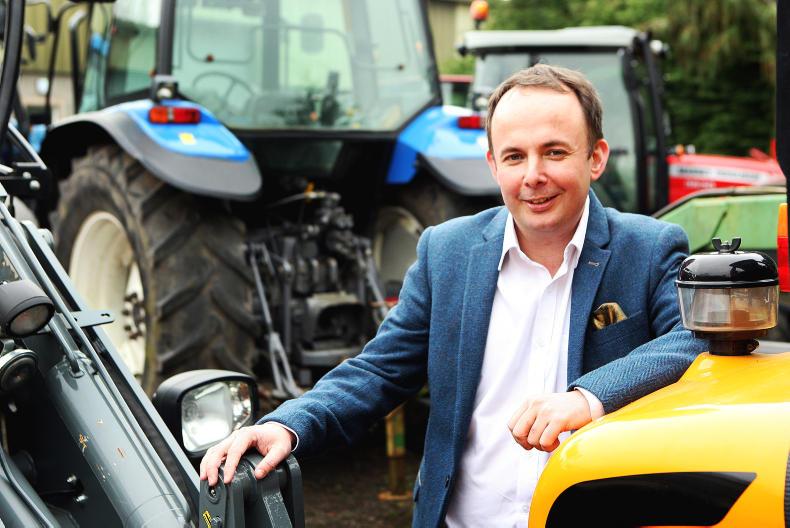
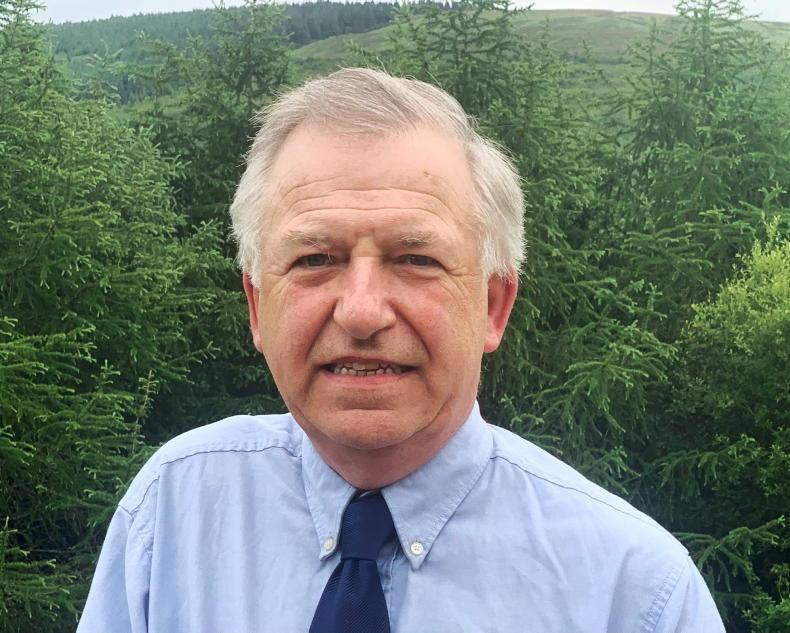


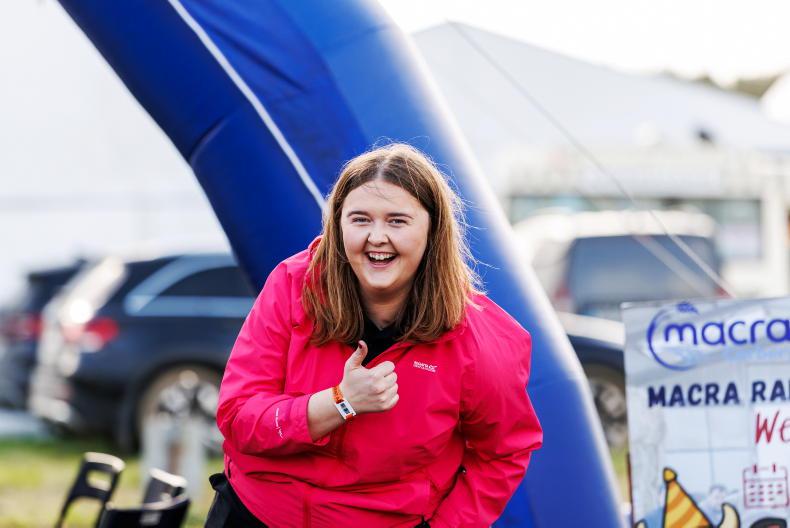
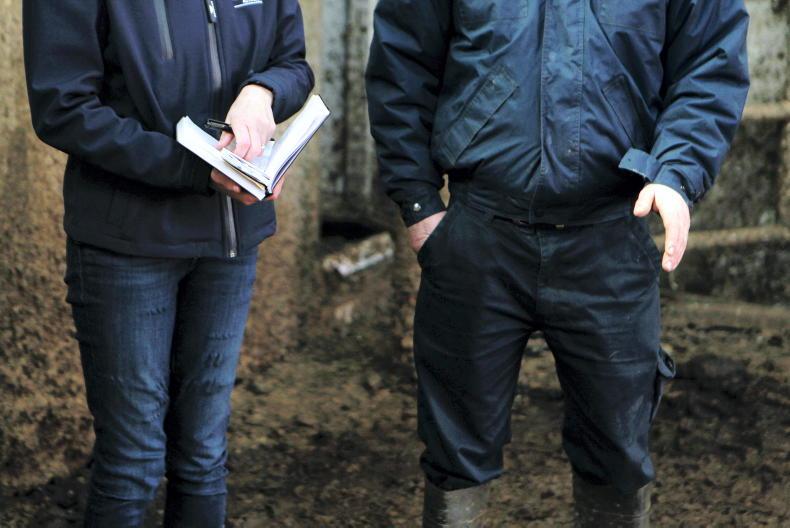
SHARING OPTIONS